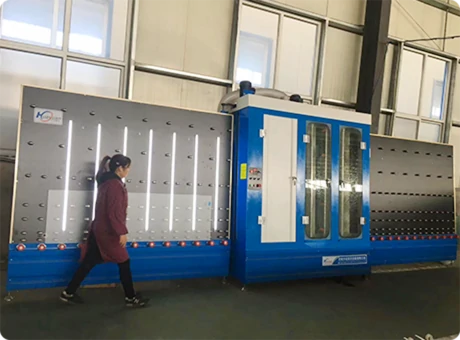Understanding Aluminum Mirror Reflectivity
Aluminum mirrors are widely utilized in various applications due to their excellent reflectivity, lightweight nature, and cost-effectiveness. Reflectivity refers to the ability of a surface to reflect light or other radiation. The performance of aluminum mirrors is particularly contingent on their specific aluminum composition, surface treatment, and the wavelength of the light being reflected. This article will delve into the factors influencing aluminum mirror reflectivity and its practical applications.
The Basics of Aluminum Reflectivity
Aluminum has an inherent reflectivity that can exceed 90% for visible light due to its metallization properties. When polished, an aluminum surface reflects about 87% to 95% of light in the visible spectrum, depending on the quality of the finish. The most significant factor affecting reflectivity is the surface structure; a smoother surface will reflect light more effectively than a rough or oxidized one.
Surface Treatment
To enhance the reflectivity of aluminum mirrors, surface treatments such as anodizing and vacuum deposition of dielectric coatings can be employed. Anodizing creates a thin oxide layer on the surface of the aluminum, which can improve its resistance to environmental factors and increase its durability. However, anodized surfaces may reflect less light compared to highly polished aluminum.
In contrast, depositing a dielectric layer on aluminum mirrors can dramatically enhance their reflectivity. These coatings are typically applied in vacuum environments and can significantly alter the reflective properties of the mirror, making them suitable for specific applications, including ultraviolet and infrared light reflection.
Wavelength Dependence
aluminum mirror reflectivity
Additionally, the reflectivity of aluminum varies with the wavelength of light. While aluminum reflects visible light efficiently, its performance differs in other regions of the electromagnetic spectrum. For example, in the infrared range, aluminum reflects less effectively than some other materials but is still useful in many thermal applications.
Practical Applications
The exceptional reflectivity of aluminum mirrors makes them invaluable in diverse fields. In the optical industry, aluminum mirrors are essential for telescopes and laser equipment, where precise light management is critical. They are also used in lighting applications, where high reflectivity can improve the efficacy and brightness of light sources.
In solar energy applications, aluminum mirrors are utilized in concentrating solar power systems. Their capacity to reflect solar radiation helps capture and convert sunlight into viable energy sources. Additionally, in the automotive industry, aluminum mirrors play a crucial role in enhancing the efficiency and performance of headlights and other lighting systems.
Environmental Resistance
Another advantage of aluminum mirrors is their resistance to corrosion when properly treated. This property makes them suitable for outdoor applications and environments where exposure to moisture is prevalent. However, it’s worth noting that unprotected aluminum can oxidize, potentially affecting its reflectivity and overall performance. Regular maintenance and periodic re-coating can help sustain their reflective properties over time.
Conclusion
In conclusion, aluminum mirror reflectivity plays a significant role in numerous applications ranging from scientific instruments to everyday objects. Understanding the factors that influence this reflectivity can aid in selecting the appropriate type of aluminum mirror for specific needs. Whether through enhanced surface treatments or careful consideration of the light spectrum involved, the adaptability of aluminum mirrors continues to support advancements in technology and innovation across a wide array of industries. As research progresses, we may see even more efficient aluminum mirror designs that push the boundaries of reflectivity, further solidifying aluminum’s role as a leading material in reflective solutions.
 Afrikaans
Afrikaans  Albanian
Albanian  Amharic
Amharic  Arabic
Arabic  Armenian
Armenian  Azerbaijani
Azerbaijani  Basque
Basque  Belarusian
Belarusian  Bengali
Bengali  Bosnian
Bosnian  Bulgarian
Bulgarian  Catalan
Catalan  Cebuano
Cebuano  Corsican
Corsican  Croatian
Croatian  Czech
Czech  Danish
Danish  Dutch
Dutch  English
English  Esperanto
Esperanto  Estonian
Estonian  Finnish
Finnish  French
French  Frisian
Frisian  Galician
Galician  Georgian
Georgian  German
German  Greek
Greek  Gujarati
Gujarati  Haitian Creole
Haitian Creole  hausa
hausa  hawaiian
hawaiian  Hebrew
Hebrew  Hindi
Hindi  Miao
Miao  Hungarian
Hungarian  Icelandic
Icelandic  igbo
igbo  Indonesian
Indonesian  irish
irish  Italian
Italian  Japanese
Japanese  Javanese
Javanese  Kannada
Kannada  kazakh
kazakh  Khmer
Khmer  Rwandese
Rwandese  Korean
Korean  Kurdish
Kurdish  Kyrgyz
Kyrgyz  Lao
Lao  Latin
Latin  Latvian
Latvian  Lithuanian
Lithuanian  Luxembourgish
Luxembourgish  Macedonian
Macedonian  Malgashi
Malgashi  Malay
Malay  Malayalam
Malayalam  Maltese
Maltese  Maori
Maori  Marathi
Marathi  Mongolian
Mongolian  Myanmar
Myanmar  Nepali
Nepali  Norwegian
Norwegian  Norwegian
Norwegian  Occitan
Occitan  Pashto
Pashto  Persian
Persian  Polish
Polish  Portuguese
Portuguese  Punjabi
Punjabi  Romanian
Romanian  Russian
Russian  Samoan
Samoan  Scottish Gaelic
Scottish Gaelic  Serbian
Serbian  Sesotho
Sesotho  Shona
Shona  Sindhi
Sindhi  Sinhala
Sinhala  Slovak
Slovak  Slovenian
Slovenian  Somali
Somali  Spanish
Spanish  Sundanese
Sundanese  Swahili
Swahili  Swedish
Swedish  Tagalog
Tagalog  Tajik
Tajik  Tamil
Tamil  Tatar
Tatar  Telugu
Telugu  Thai
Thai  Turkish
Turkish  Turkmen
Turkmen  Ukrainian
Ukrainian  Urdu
Urdu  Uighur
Uighur  Uzbek
Uzbek  Vietnamese
Vietnamese  Welsh
Welsh  Bantu
Bantu  Yiddish
Yiddish  Yoruba
Yoruba  Zulu
Zulu 

